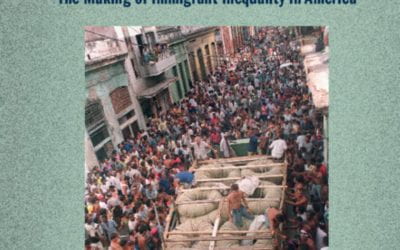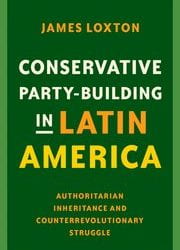Law Librarians Working The Legal Lens
In mid-March 2020, when all of New York City was preparing to go into a lockdown and the cases of people infected and dying of COVID-19 were doubling every day, Marcelo decided to create a group of law librarians monitoring the legal response to the same crisis in Latin America and the Caribbean.
This project was born out of a place of frustration and hope. The news media were focusing almost exclusively in the rapidly deteriorating situation in most of Western Europe as well as here in the United States. Very little information was shared or featured on the situation in neighboring countries. There was a sense that COVID-19 had arrived “late” in Latin America compared to Western Europe and the United States.
Therefore, we were meant to believe that the seeming lack of information was merely because of the lack of cases or preparation in the region. However, Marcelo knew firsthand that the situation was far from quiet. Through family, friends and colleagues living in different parts of Latin America and the Caribbean, Marcelo had formed a completely new picture of the situation, understanding how much our well-being here in the United States depended on their well-being in Latin American and the Caribbean and vice versa.
When you are a librarian, you learn quickly that access to information is the key to everything. When you are a law librarian, access to legal and government information is transformed into access to justice through an informed citizenry. Considering the dramatic and rapidly evolving situation, we had to do something concrete and productive, reflecting the values of being a law librarian. In the spirit of community and identity, Marcelo began to reach out to other law librarians whom he had met previously through the American Association of Law Libraries (AALL). After a few days, we had a fantastic group of seven law librarians monitoring every single part of the region. Immediately, we began monitoring the legal response in each of our countries and territories, collecting important data and creating a series of Biweekly Reports.
As law librarians, we strongly believe that we have the expertise and the network to strive for a more comprehensive and nuanced understanding of a particular issue. We sincerely wish that this is just a first stepping stone into reaching out to each other in the context of a tragic situation, and to lift us up to the promise of a better future for our entire continent. Let’s take a look at some interesting updates on a handful of the countries the authors are tracking and their personal interests with these countries.
Argentina, Uruguay and Chile
Michele enlisted in this project because she was interested in learning more about how other countries, specifically in South America, are dealing with this global epidemic. Her hope is that the research with this project will lead to future collaborations with the Latin American and Caribbean regions. In April 2009 as part of her doctoral experience at Pepperdine University, Michele had to choose between an international trip to Argentina or China. She selected Argentina. Michele fell in love with the country—the people, the weather, its food, its plazas, its wine, the flamenco, the language, its futbol, the history. Even back then, when Michele was a practicing law librarian, she loved the law and always took photos of law schools and interesting buildings!
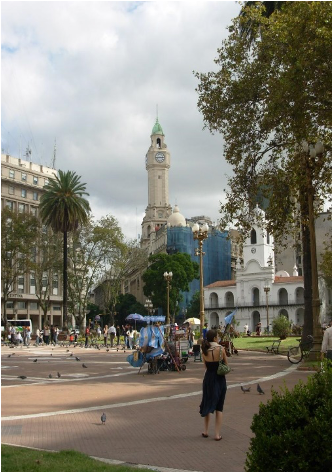
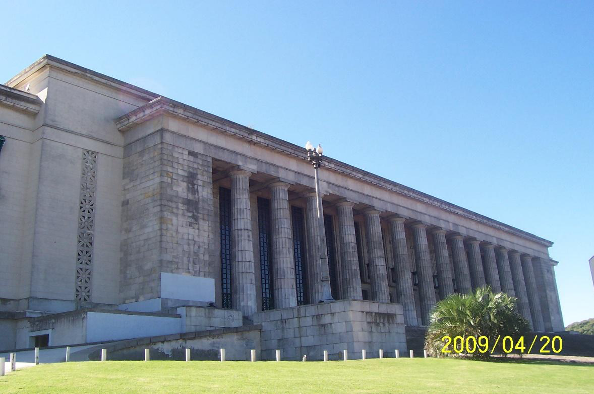

As a result of this trip, Michele has included Argentina on the top five places to live and it still remains on her list! Monitoring the legal response to COVID-19 in Argentina would offer her the connection she had years before, but in a different realm. While Michele did not get to visit Uruguay or Chile at that time, she thought it would be interesting to consider how these two countries compared to Argentina.
Argentina remains the country with the most activity around the COVID-19 situation. It began its mandatory quarantine on March 19, but in the month that has followed there have been concerns across some of the most vulnerable and largest populations. For example, March 28 criminals were asking for jail release given the risk of the virus. With more than 35% of the population in Argentina considered poverty-stricken, the concerns were high and the low-income neighborhoods were organizing against the virus. On April 6, the Argentine government postponed local debt payments due in dollars until the end of the year. Argentina has had an unstable debt situation for some time and the pandemic has not helped. Even before the virus arrived, there were already projections for the third year of recession for the second-largest nation in South America.
While Chile seems to have the most comprehensive action plan for COVID-19 that includes official figures, quarantines, self-care, protocols, news and frequent questions, President Sebastián Piñera was under a lot of pressure in the beginning to announce the national quarantine and follow its neighbor, Argentina. Some protocols worth highlighting were passed in early April. On April 8, 2020, the Chilean Senate adopted a protocol for carrying out committee sessions remotely during the 90-day state of health emergency declared on March 18, 2020, by President Sebastián Piñera. The protocol provides that during the emergency senators may participate and vote in committee sessions either in person or through remote means. In May, the government enacted a law creating emergency family income to aid households. The requirements to request the emergency family income and who is eligible can visit http://www.ingresodeemergencia.cl/. The Minister of health, Jaime Mañalich, announced the “COVID Cards” which would be offered to individuals who have recovered from COVID-19 as indicated by antibody testing, releasing them from quarantine and other restrictions. This is the world’s first immunity cards, and their issuance has been fraught with debate. According to Bloomberg, Chile has the highest testing rate per capita in South America at more than 95,000.
As for Uruguay, being such a small country, it is used to relying on itself in comparison to to Argentina and Chile. It also have had far less impact financially as the other countries. The government measures include tax (direct and indirect), employment, and economic stimulus measures. On April 15, the Uruguayan parliament passed Law 19869, providing a legal framework for telemedicine. The new law offers opportunities for the e-health industry and prioritizes alternative means of access to medical consults and hospitals.
Peru, Bolivia and Paraguay
Marcelo chose to monitor Peru, Bolivia and Paraguay as a personal and professional challenge. Rich in natural resources and cultural diversity, these three countries offer representative features and at the same time special characteristics that set them apart from the entire region. Specific situations in all three countries have been exacerbated during the current crisis as well as broader issues touching not only these three countries, but the entire region. Since day one, monitoring the legal response to the COVID-19 in these countries has been a balancing act between highlighting a specific issue, while trying to keep abreast of the bigger picture and similar response elsewhere in the region.
For example, on April 2, Peru, together with Panama, began restricting movement by gender. Women and men were allowed to leave their houses exclusively on the three days assigned to their gender. No one was allowed to leave their houses on Sundays. This gender-based restrictive policy proved to be controversial with the transgender community in Peru as well as creating a significant amount of confusion and chaos. On April 10, Peru cancelled the controversial policy. However, as far as we know, Panama has continued its implementation, and since the end of April, Colombia’s capital city, Bogota has decided to implement a similar policy. These failed and discriminatory policies are unfortunately part of a pattern of transphobia which COVID-19 has exacerbated or has brought to everyone’s attention: lack of access to health care, harassment by the public as well as police forces, and fear to report any abuses.
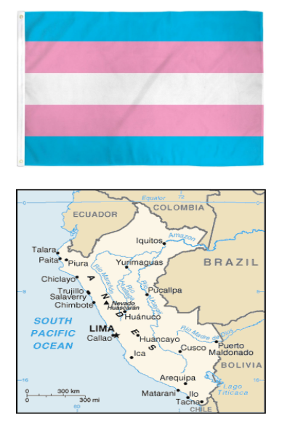
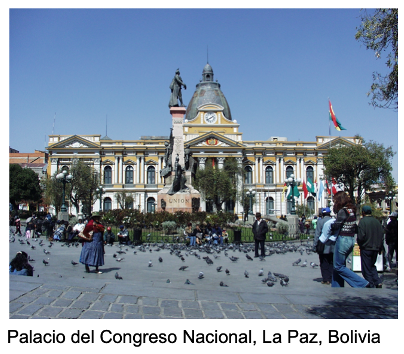
On March 21, Bolivia’s Supreme Electoral Tribunal suspended the presidential elections scheduled for May 3,and also declared a 14-days suspension of electoral campaigns. Given the political crisis at the end of last year when the then-President Evo Morales left the country sparking national protests, the current interim government of Jeanine Añez’s legitimacy has been questioned in some circles. Despite these concerns, the May 3 elections were universally seen as the democratic way forward for a country marred in a precarious political situation. Taking advantage of its control over parliament, the opposition approved a motion whereby elections need to take place by August 2. Suspension of elections is one example of the need to ensure transparency, accountability and citizen participation at all steps of the political process now more than ever.
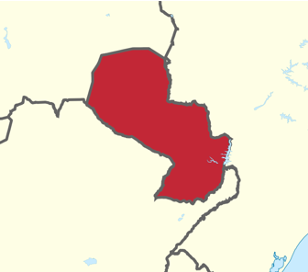
Compared to the other two countries, Paraguay seems to have escaped the worst of the pandemic without the need to implement the same stringent policies. President Mario Abdo Benitez has been both lauded for its government’s actions as well as criticized for the lack or slow testing in the country. Landlocked Paraguay is also an example of the imperious need for a regional and international response to a pandemic which completely disregards political boundaries. Despite its low rate of people infected or dead, Paraguay faces insurmountable pressure and challenges as Brazil becomes the new hotspot in the region. Brazil’s President Bolsonaro has recklessly downplayed the situation in its country, and he has consequently endangered any progress its neighboring countries might be able to achieve. Porous borders, presence of isolated indigenous communities across borders, refugees coming from Venezuela and much-needed supply chains among countries are all part of an explosive situation which demands a coordinated and collaborative regional and international approach.
What’s Next
This project is only in its beginning stages. Now two months into the monitoring, the team of seven law librarian professionals continue to monitor their respective countries:
- Mary Abby Dos Santos: Brazil
- Yasmin Morais: CARICOM
- Eduardo Colon-Semidey: Puerto Rico, Dominican Republic, Cuba
- Ulysses Jaen: Mexico, Central America
- Michele A. L. Villagran: Chile, Argentina, Uruguay
- Victoria De La Torre: Colombia, Ecuador, Venezuela
- Marcelo Rodriguez: Peru, Bolivia, Paraguay, regional overview
Our team consists of law librarians from all segments: government, law firms, universities and LIS education. The diversity in professional backgrounds is one of our strongest features and we each reach out to our networks to share our particular reports to generate interest in our project.
We have developed a dedicated website, “Monitoring the Legal Response to COVID-19 in Latin America and the Caribbean” where we include our summary reports, top five most-trusted sources and our publications. You can also learn a bit about each of the project participants above. The monitoring of legal responses from regulatory to legislative to other country specific legal concerns will continue through July 2020. Upon completion of monitoring, our team has a host of ideas for next steps including collaborations, publishing and presenting.
Collaborating
Our team welcomes potential collaborations among other groups, agencies and interested groups or individuals. This project has many limbs that can be infused with other possibilities. We are currently closely working with both the African Law Interest Group and the Asian Law Interest Group of AALL to create similar projects in these jurisdictions. We really believe the sky is the limit with this type of project and that each jurisdiction deserves representation if possible.
Publishing
Another intention of this project is to share our findings with the larger community; law librarians, academics, corporations, and organizations that may be interested. We are hoping to publish our efforts to several different outlets as this project is unique in and of itself and the findings are particularly unique given the majority of the coverage of COVID-19 has been more U.S.-centric or local. The opportunities here include publishing our research in scholarly articles in legal journals, library and information science publications, and book opportunities. We are considering opportunities to publish in multiple languages as well.
Presenting
Along with our publication desires are presenting opportunities such as presenting at webinars and conferences. We are in communications with the Foreign, Comparative, and International Law Special Interest Section of AALL about a possible webinar this coming summer. Additionally, we’d like to speak at local and international conferences about this project and the importance to the communities in which we are following.
Bibliotecarios de Derecho Trabajado a Través del Lente Jurídico
Siguiendo de Cerca la Respuesta Legal al COVID-19 y América Latina y el Caribe
Por Marcelo Rodríguez y Michele A.L. Villagran
A mediados de marzo del 2020, cuando toda la ciudad de Nueva York se estaba preparando para comenzar su estado de emergencia y los casos de personas infectadas y muriendo a causa del COVID-19 estaban doblándose cada día, Marcelo decidió crear un grupo de bibliotecarios de derecho para seguir de cerca la respuesta legal de los gobiernos a esta misma crisis en América Latina y el Caribe.
Este proyecto nació desde un lugar de frustración y esperanza. Los medios de comunicación se concentraban exclusivamente en la situación deteriorándose rápidamente en Europa Occidental y en los Estados Unidos. Escasa información estaba siendo diseminada o enfocada en países adyacentes. Era común recalcar que el COVID-19 había llegado a América Latina de manera “tardía” al compararse con Europa Occidential y los Estados Unidos.
De esta manera, se nos daba a entender que la escasez de información era sólo una muestra de la escasez de casos o preparación en la región. Al contrario, Marcelo sabía personalmente que la situación en realidad se mostraba de manera diferente. A través de familiares, amigos y colegas que viven en varias partes de América Latina y el Caribe, Marcelo se había formado un panorama completamente diferente y a su vez entendiendo que nuestro bienestar en los Estados Unidos está íntimamente ligado al bienestar de América Latina y el Caribe y viceversa.
Cuando se es un bibliotecario, uno entiende rápidamente que el acceso a la información es la clave de todo. Cuando se es bibliotecario de derecho, el acceso a la información legal y gubernamental se transforma en acceso a la justicia a través de una ciudadanía informada. Considerando cómo la situación se desarrollaba tan rápida y dramáticamente, debíamos hacer algo concreto y productivo que reflejaran los valores de un bibliotecario de derecho. A través del espíritu de comunidad e identidad, Marcelo comenzó a contactar a varios bibliotecarios de derecho que él había conocido anteriormente a través de la Asociación Americana de Bibliotecas de Derecho (AALL, por sus siglas en inglés). Luego de varios días, contábamos con un grupo fantástico de siete bibliotecarios de derecho siguiendo de cerca cada parte de la región. Inmediatamente, comenzamos a observar la respuesta legal en cada uno de los países y territorios, recopilar datos pertinentes y escribir una series de Reportes Bisemanales.
Como bibliotecarios de derecho, nosotros creemos fervientemente que tenemos la habilidad y los contactos para exigir un entendimiento más abarcador y un enfoque más matizado sobre algún tema en particular. Nosotros esperamos sinceramente que este proyecto es sólo el primer paso para llamarnos mano en mano bajo el marco de una tragedia y erguirnos todos hacia la promesa de un mejor futuro para todo nuestro continente. Veamos algunos de los ejemplos sobre la situación en los países que los autores están siguiendo detenidamente y sus intereses personales con estos países.
Argentina, Uruguay y Chile
Michele se unió a este proyecto porque estaba interesada en aprender más sobre cómo otros países, particularmente en América del Sur, estaban enfrentando la epidemia global. Ella espera que este proyecto sea el primero de futuras colaboraciones con la región de América Latina y el Caribe. En abril del 2009 como parte de su doctorado en la Universidad de Pepperdine, Michele tenía que escoger un viaje internacional entre Argentina o China. Ella seleccionó Argentina. Michele se enamoró del país – su gente, clima, comida, plazas, vino, flamenco, idioma, fútbol, historia. Aún en ese tiempo cuando Michele era una bibliotecaria de derecho a tiempo completo, ella se interesaba muchísimo por el derecho y siempre tomaba fotos de escuelas de derecho y edificios interesantes.
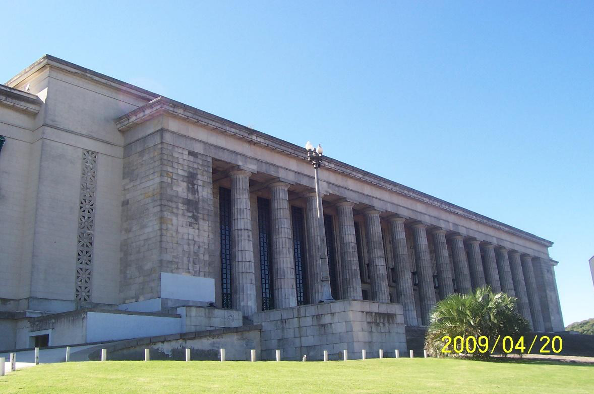

Como resultado de este viaje, Michele ha incluído a la Argentina como uno de sus lugares predilectos para vivir y todavía se ha quedado en su lista. Seguir de cerca y observar la respuesta legal al COVID-19 en Argentina le ofrece a ella la conexión que ella sintió hace años atrás, esta vez de manera diferente. A pesar de que Michele no ha visitado Uruguay o Chile, ella pensó que sería interesante considerar cómo estos dos países se comparan con la Argentina.
Podemos considerar a la Argentina como el país con más actividad alrededor de la crisis del COVID-19. Comenzó con su cuarentena mandatoria el 19 de marzo, pero en los meses consecutivos han habido preocupaciones a través sus poblaciones y grupos más vulnerables y más largos. Por ejemplo, el 28 de marzo criminales pedían su liberación dado el riesgo de contraer el virus en las prisiones. Con más del 35% de la población en Argentina considerada como bajo el nivel de pobreza, las preocupaciones son sin duda altas especialmente cómo estas comunidades de bajos recursos se estaban organizando contra el virus. El 6 de abril, el gobierno argentino pospuso los pagos locales de la deuda en dólares hasta el fin del año. Argentina ha lidiado con una situación inestable sobre su deuda por un cierto tiempo y la pandemia no ha ayudado. Incluso antes de la llegada del virus, las proyecciones vaticinaban un tercer año de recesión para la segunda nación más grande en América del Sur.
A pesar de que Chile parece contar con el plan de acción más abarcador que incluye datos oficiales, cuarentenas, autocuidado, protocolos, noticias y preguntas frecuentes, el presidente, Sebastián Piñera se encontró bajo gran presión al principio al anunciar la cuarentena nacional y seguir a su país vecino, Argentina. Algunos de los protocolos y consignas que merecen ser mencionados fueron confirmados a principios de abril. El 8 de abril del 2020, el senado chileno adoptó un protocolo para llevar a cabo sesiones de comités virtualmente durante los 90 días de la emergencia de salud declarada el 18 de marzo del 2020 por el presidente Sebastián Piñera. El protocolo provee que durante la emergencia los senadores puedan participar y votar en las sesiones de comités en persona o virtualmente. En mayo, el gobierno promulgó una ley creando un ingreso de emergencia para ayudar a familias. Los requisitos para pedir el ingreso de emergencia y quién es elegible se pueden ver en este enlace: http://www.ingresodeemergencia.cl/. El ministro de la salud, Jaime Mañalich anunció el “Carnet Covid”, el cual se le ofrecerán a los individuos que se han recuperado del COVID-19 así sea indicado en las pruebas de anticuerpos para permitirles salir de la cuarentena y otras restricciones. Este sería el primer caso de tarjetas de inmunidad en el mundo y su salida ha estado plagada de controversia. Según Bloomberg.com, Chile tiene el más alto nivel de pruebas efectuadas por cápita en América del Sur a más de 95,000.
Siendo un país pequeño en comparación con Argentina y Chile, Uruguay suele lidiar con sus problemas independientemente. Por el momento, también ha tenido un impacto mucho más menor financieramente que otros países. Las medidas del gobierno incluyen impuestos (directos o indirectos), empleo y estímulo económico. El 15 de abril, el parlamento uruguayo pasó la ley 19869 que provee un marco legal para la telemedicina. La nueva ley ofrece oportunidades para la industria de salud virtual y prioriza recursos alternativos para el acceso a consultas médicas y hospitales.
Peru, Bolivia y Paraguay
Marcelo escogió observa a Perú, Bolivia y Paraguay como un reto personal y profesional. Ricos en recursos naturales y diversidad cultural, estos tres países ofrecen a su vez rasgos representatives como características especiales que los diferencian de la región. Las situaciones específicas en los tres países se han exacerbado durante la crisis actual al igual que los problemas más grandes que impactan no sólo estos tres países sino a la región entera. Desde el primer día, el seguir de cerca la respuesta legal al COVID-19 en estos países ha sido un acto de equilibro entre acentuar un problema específico, mientras tratamos de entender el marco global y respuestas similares en otras partes de la región.
Por ejemplo, el 2 de abril Perú, junto con Panamá, comenzaron a restringir el movimiento de las personas en base a su género. A las mujeres y los hombres se les permite salir de sus hogares sólo en las tres días asignados a su género. A nadie se le permitía salir de sus hogares los domingos. Esta medida restrictiva basada exclusivamente en género se convirtió en eje de controversia con la comunidad transgénero en Perú al igual que creó una cantidad significativa de caos y confusión en toda la población. El 10 de abril, Perú canceló la controversial medida. Sin embargo, Panamá continúa su implementación y desde finales de abril, la capital de Colombia, Bogotá, ha decidido de implementar una política similar. Estas políticas fallidas y discriminatorias son desafortunadamente parte de un patrón latente de transfobia, el cual el COVID-19 ha exacerbado o ha llevado a la atención de todos: carencia de acceso a cuidado médico, acoso por parte del público al igual que las fuerzas policiacas y el miedo a reportar cualquier abuso.


El 21 de marzo, la Sala Plena del Tribunal Supremo Electoral (TSE) de Bolivia suspendió las elecciones presidenciales anteriormente pautadas para el 3 de mayo y también declaró una suspensión de 14 días de todas las campañas electorales. Dada la crisis política desde finales del año pasado cuando el anterior presidente, Evo Morales dejó el país y provocó protestas nacional, la legitimidad del gobierno temporero actual de Jeanine Añez has sido puesto en duda en varios lugares. A pesar de estas preocupaciones, las elecciones del 3 de mayo eran consideradas por todos como el camino democrático a seguir en un país abrumado en una situación política precaria. Tomando ventaja de su control político sobre el parlamento, la oposición aprobó una moción mediante la cual las elecciones tienen que llevarse a cabo antes del 2 de agosto. La suspensión de elecciones es uno de los ejemplos de la necesidad de asegurar transparencia, responsabilidad y participación ciudadana en todos los eslabones del proceso político ahora más que nunca.

Comparado con los otros dos países, Paraguay parece haber escapado lo peor de la pandemia sin haber tenido que implementar políticas rigurosas. El presidente, Mario Abdo Benítez ha sido laudado por las acciones de su gobierno al igual que criticado por la falta o el lento proceso de pruebas en el país. Como país sin litoral, Paraguay es a su vez un ejemplo de la imperiosa necesidad de una respuesta regional e internacional a una pandemia a la cual no le importa las fronteras políticas. A pesar de su bajo nivel de personas enfermas o muertas, Paraguay se enfrenta a retos y desafíos considerables ahora que Brasil se convierte en el epicentro de la crisis en la región. El presidente de Brasil, Bolsonaro ha minimizado la situación en su país irresponsablemente y como consecuencia ha puesto en peligro cualquier progreso en los países adyacentes. Fronteras porosas, la presencia de comunidades indígenas aisladas a través de las fronteras, refugiados provenientes de Venezuela y las importantes cadenas de suministros son todos factores importantes en una situación explosiva la cual exige un enfoque de colaboración regional e internacional.
Próximos Pasos
Este proyecto se encuentra sólo en sus pasos iniciales. Luego de dos meses observando la situación, el equipo de siete bibliotecarios de derecho continúa a seguir de cerca sus respectivos países:
- Mary Abby Dos Santos: Brasil
- Yasmin Morais: CARICOM
- Eduardo Colon-Semidey: Puerto Rico, República Dominicana, Cuba
- Ulysses Jaen: México, América Central
- Michele A. L. Villagran: Chile, Argentina, Uruguay
- Victoria De La Torre: Colombia, Ecuador, Venezuela
- Marcelo Rodriguez: Perú, Bolivia, Paraguay, Región entera
Nuestro grupo incluye bibliotecarios de derecho de todos los segmentos: gobierno, bufetes de abogados, universidades y educación LIS. La diversidad en nuestros antecedentes profesionales es uno de nuestros rasgos más importantes y cada uno contacta sus redes respectivas para compartir nuestros reportajes y crear interés en nuestro proyecto.
Contamos también con nuestra página de internet, “Monitoring the Legal Response to COVID-19 in Latin America and the Caribbean” en inglés, en la cual incluímos nuestros reportajes bisemanales, fuentes de información más fidedignas y publicaciones. Además puedes aprender sobre cada uno de los participantes. El proceso de observar las respuestas legales desde políticas hasta legislación y preocupaciones jurídicas específicas a varios países continuará hasta julio del 2020. Luego de finalizar este proceso, nuestro equipo tiene pensado entamar un a serie de pasos conducivos a varias colaboraciones, publicaciones y presentaciones.
Colaboraciones
Nuestro equipo de bibliotecarios fomenta todas las colaboraciones potenciales con otros grupos, asociaciones o individuos. Este proyecto tiene muchos ángulos que pueden ser explorados con otras posibilidades. En este momento, estamos en proceso de crear proyectos similar en otras jurisdicciones, por ejemplo en países africanos o asiáticos. Nosotros creemos que el cielo es el límite con este tipo de proyecto y que cada jurisdicción merece representación, si es posible.
Publicaciones
Otro propósito de este proyecto es compartir y diseminar nuestro análisis y hallazgos con varios grupos: bibliotecarios, académicos, corporaciones y organizaciones que puedan estar interesados. Esperamos publicar nuestros esfuerzos en varios lugares diferentes ya que este proyecto es único y los hallazgos son particularmente únicos dado que la mayoría de la cobertura del COVID-19 has sido concentrada en los Estados Unidos o local. Las oportunidades incluyen publicar nuestras investigaciones en artículos académicos a través de publicaciones legales, de las ciencias de la información y biblioteconomía al igual que libros. Estamos también considerando publicar en varios idiomas.
Presentaciones
Junto con nuestros de deseos de publicar, esperamos contar con oportunidades para presentar nuestro proyecto en simposios virtuales y conferencias. Estamos en proceso de confirma un simposio virtual con la sección de interés de Derecho Extranjero, Comparativo e Internacional (FCIL-SIS por sus siglas en inglés). Adicionalmente, nos gustaría tomar la palabra en conferencias locales e internacionales sobre este proyecto y la importancia en las comunidades que estamos monitoreando.
Michele A. L. Villagran is an Assistant Professor at San José State University School of Information.
Michele A. L. Villagran es una Profesora Asistente en la Escuela de Información en la Universidad de San José.
Related Articles
A Review of Cuban Privilege: the Making of Immigrant Inequality in America by Susan Eckstein
If anyone had any doubts that Cubans were treated exceptionally well by the United States immigration and welfare authorities, relative to other immigrant groups and even relative to …
A Review of Conservative Party-Building in Latin America: Authoritarian Inheritance and Counterrevolutionary Struggle
James Loxton’s Conservative Party-Building in Latin America: Authoritarian Inheritance and Counterrevolutionary Struggle makes very important, original contributions to the study of…
Endnote – Eyes on COVID-19
Endnote A Continuing SagaIt’s not over yet. Covid (we’ll drop the -19 going forward) is still causing deaths and serious illness in Latin America and the Caribbean, as elsewhere. One out of every four Covid deaths in the world has taken place in Latin America,...

